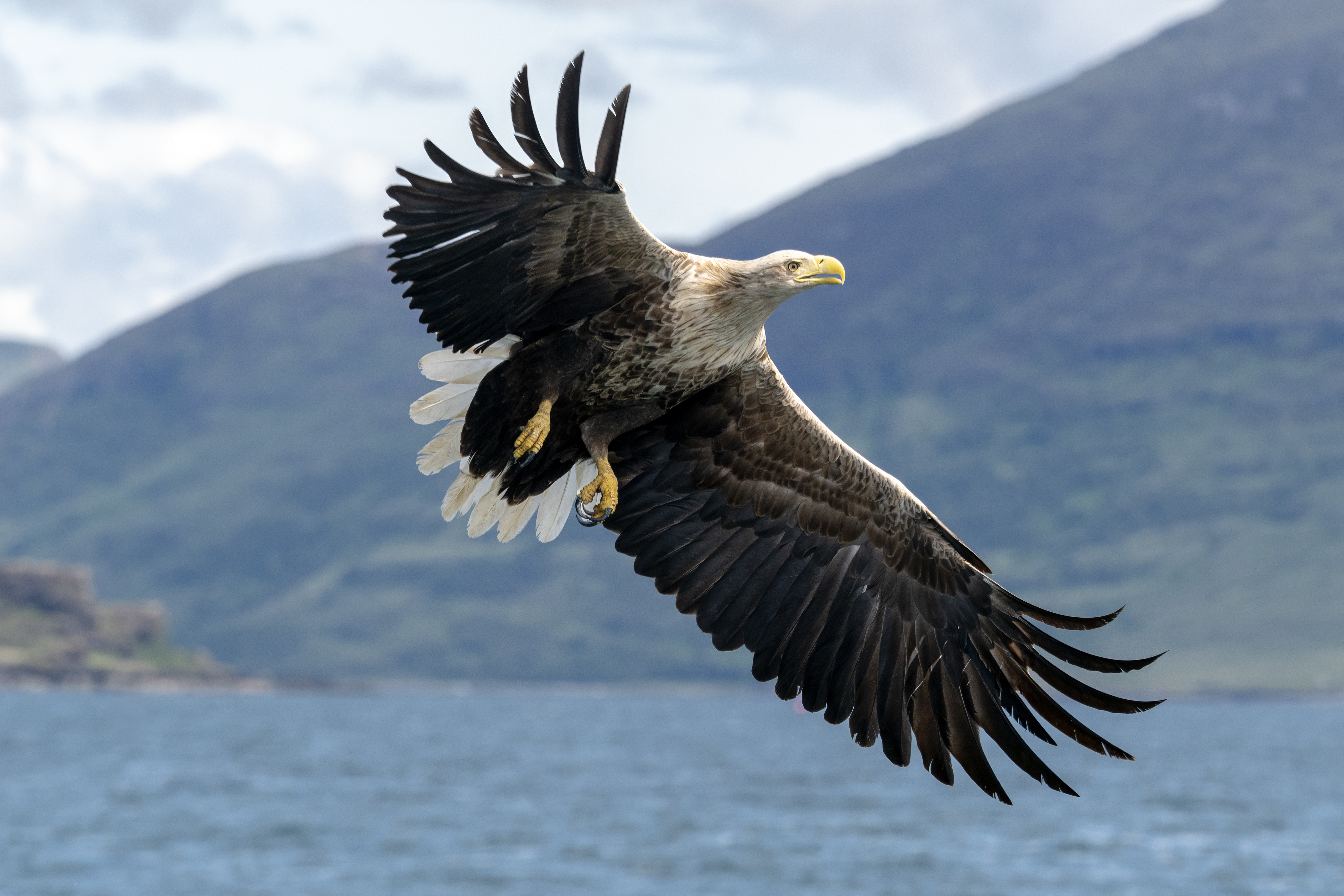
For most of the last 2,000 years, the white-tailed eagle — or sea eagle — was one of the most common birds of prey in Britain.
That all ended in horrendous fashion from the late 18th century onwards. Shooting, poisoning, egg collection, a mania for taxidermy and more combined to see this majestic creature — affectionately dubbed the 'flying barn door — hunted to extinction in Britain. The last bird is thought to have been killed in 1918.
Subscribe to the Country Life Podcast
Fast forward a century and they are now one of the great success stories of nature. Starting with four chicks brought to RAF Kinloss in June 1975, a 50-year effort led by the RSPB but supported by a string of other organisations has seen populations restored from the Highlands to West Sussex. The RSPB have celebrated this milestone with the making of a film, Return, which tells the full story, and we're delighted that two of the — conservationist Dave Sexton and musician Alice Boyd — joined the Country Life Podcast to talk to James Fisher about how it all came together.
It's a wonderful, inspiring story which shows just what can be done by committed experts, backed by long-term thinking, and is a must-watch for anyone with even a passing interest in wildlife and nature. As of August 29 it's now available to watch on the RSPB's YouTube channel.

You can find out more on the RSPB website — rspb.org.uk — about white-tailed eagles themselves, the making of the film and Alice's hauntingly beautiful music which captures the beauty and majesty of these great creatures.
Episode credits
Host: James Fisher
Guests: Dave Sexton and Alice Boyd
Editor and producer: Toby Keel
Music: JuliusH via Pixabay
Exquisite houses, the beauty of Nature, and how to get the most from your life, straight to your inbox.
Toby Keel is Country Life's Digital Director, and has been running the website and social media channels since 2016. A former sports journalist, he writes about property, cars, lifestyle, travel, nature.

